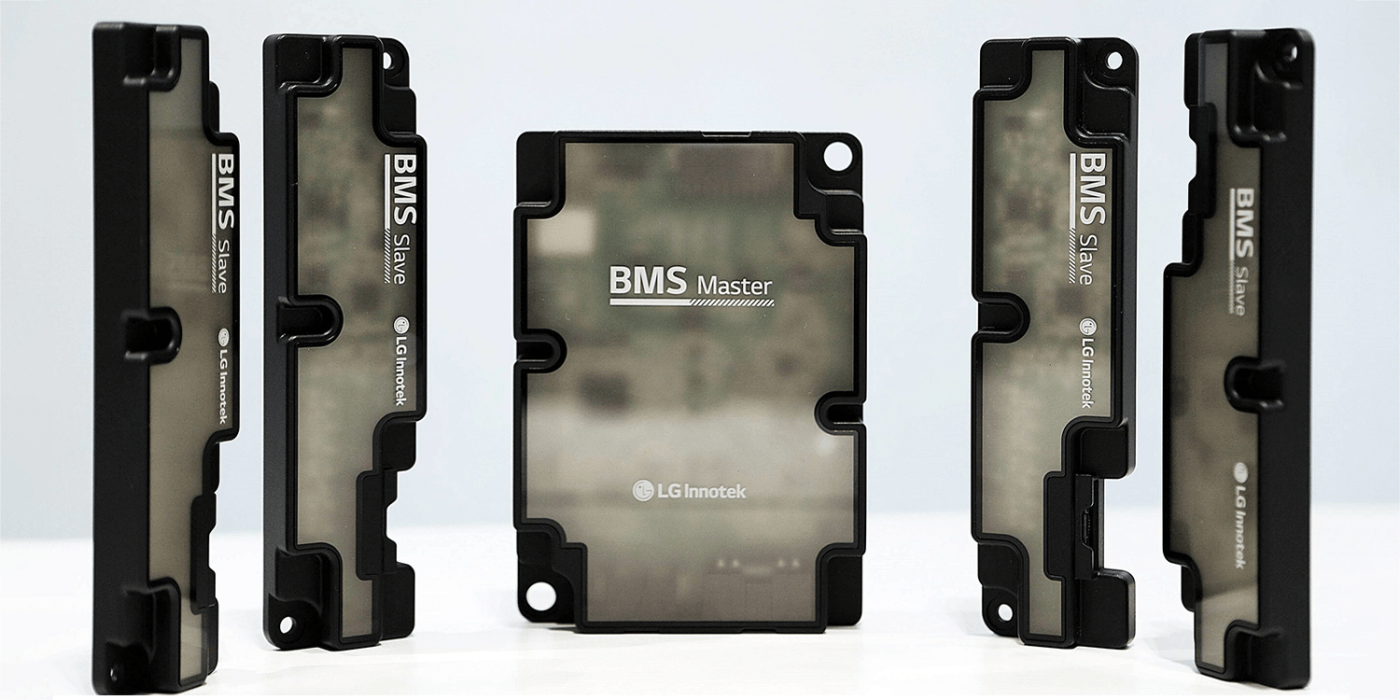LG Innotek presents wireless battery management system
LG Innotek, a company belonging to the South Korean conglomerate LG, has developed a wireless 800-volt battery management system for electric vehicles. The solution is designed to make battery packs smaller and lighter. Production is scheduled to start next year.
The wireless BMS is embedded in a high-frequency communication module that combines essential components for wireless communication such as a chip and an antenna in one device – the first time this has happened anywhere in the world, according to the company. The main advantage of the wireless BMS is that it reduces both the weight and the volume of a battery pack. This ensures ten to 15 per cent more space to increase the capacity of the battery pack.
Battery management monitors and controls factors such as voltage, current and temperature within a battery pack – first within a battery module (by cable), then the individual modules in turn wired to the entire battery system at the pack level. If these cables and their connections are eliminated, the weight should be able to drop between 30 and 89 kilograms (original specification: 66 to 198 pounds), according to the announcement. In terms of space, there should be an improvement of between ten and 15 per cent, which can be used either for more cells with the same installation space or for a more compact battery housing.
LG Innotek also emphasises that a wireless BMS is supposed to increase reliability – even if a radio system instead of cables, which are less susceptible to interference, initially suggests the opposite. According to the company, on the one hand, “the possibility of cable or connector defects due to the shaking of the vehicle will completely disappear”. On the other hand, potential sources of error during the manual assembly of the battery systems would be eliminated. Another side effect is that the complex installation of wiring inside the battery, which is currently often done by hand, is no longer necessary and can be automated with the help of robots – which reduces costs.
Mass production of the wireless BMS is planned to start in 2024. However, the approach of a wireless BMS is not entirely new, as the US semiconductor specialist Texas Instruments (TI) had already presented such a system at the beginning of 2021, however, this was not designed for 800 volts. General Motors also relies on an “almost completely wireless battery management system” for its Ultium battery platform.





2 Comments